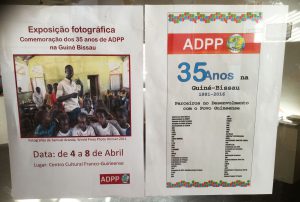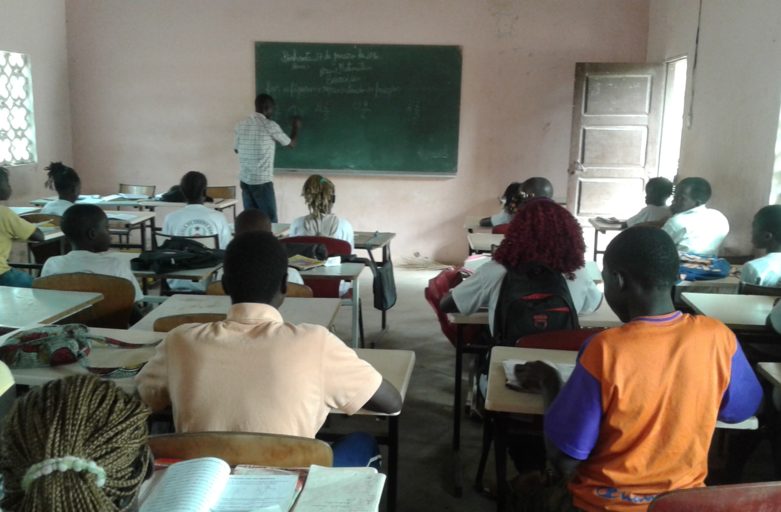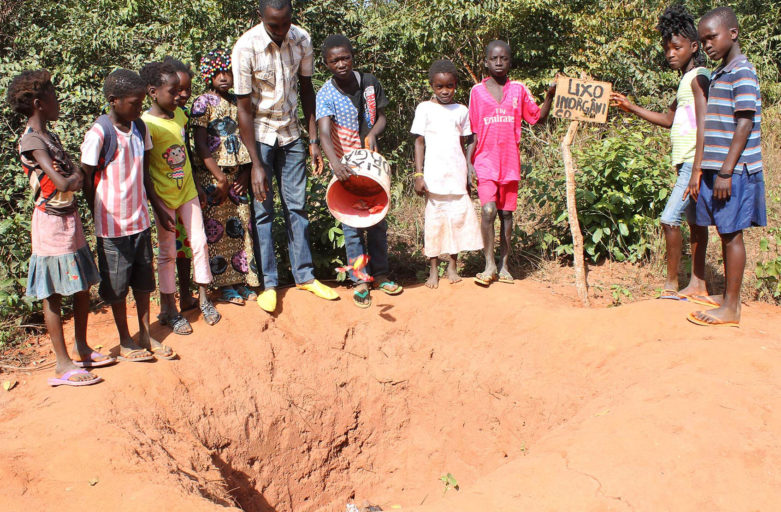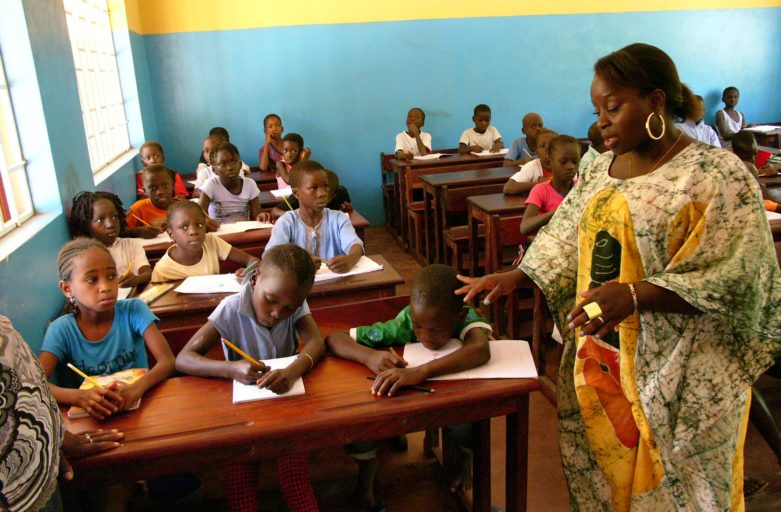The systematic teaching practice took its beginning in the neighboring primary schools. 3 days a week the students from DNS Cacheu met the children in their classrooms together with their teacher, the first days by watching and listening to the school teacher; later starting planning and practicing themselves, following the old principle that “Practice Makes Perfect” and overcoming from an early stage the whatever fear, they might have had in exposing themselves.
Collectively in the groups the plans of each student were commented and improved before being practiced at the school.
Another key element in the program was initiated during the teaching period. IST (It is Show Time) where the students exercise a bouquet of performances, such as dancing, theater play, poems, drawings, songs for and with their pupils, took its beginning, and as part of this people from the surrounding communities were invited for programs during evenings and weekends.
Still another innovatory creation in the DNS program moved from theoretical description in the Book to practice at the school. The SPS, Saturday Pedagogical Session, had its first event with the title: “The importance of education in practical capacities”. 9 primary school teachers from the practice schools, the 40 students from our school and 5 DNS teachers including headmaster; in total 54 participants were present during the Saturday Pedagogical Session.
The main study subjects for the students during this period were: Child Psychology, Pedagogy, Social Science, Mathematics, School Organization and Administration, Sociology, Agriculture and Physical Education including sport. The last week of the period had the subject “The World” with the content to study and understand the world.
The students learned about the reasons of some countries being poor and people getting angry, while other countries are rich, and why we in this way have a divided world. Some of the methods included, that Functional Groups made performances e.g. poem, song and theater addressing people in the community about it.
 20 women from Bissorã began their professional activities as seamstresses in the new tailor’s office created by the Vocational School, thanks to the financing of the German Embassy.
20 women from Bissorã began their professional activities as seamstresses in the new tailor’s office created by the Vocational School, thanks to the financing of the German Embassy.

 A Health Corps of 35 volunteers is already in the border areas of the Gabú and Bolama-Bijagós regions in order to strengthen the capacity of communities to cope
A Health Corps of 35 volunteers is already in the border areas of the Gabú and Bolama-Bijagós regions in order to strengthen the capacity of communities to cope
 ADPP GB has been established in Guinea Bissau for more than three decades with the aim of contributing to the development of the country working shoulder to shoulder with the Guinean population. 35 years later, ADPP GB
ADPP GB has been established in Guinea Bissau for more than three decades with the aim of contributing to the development of the country working shoulder to shoulder with the Guinean population. 35 years later, ADPP GB



